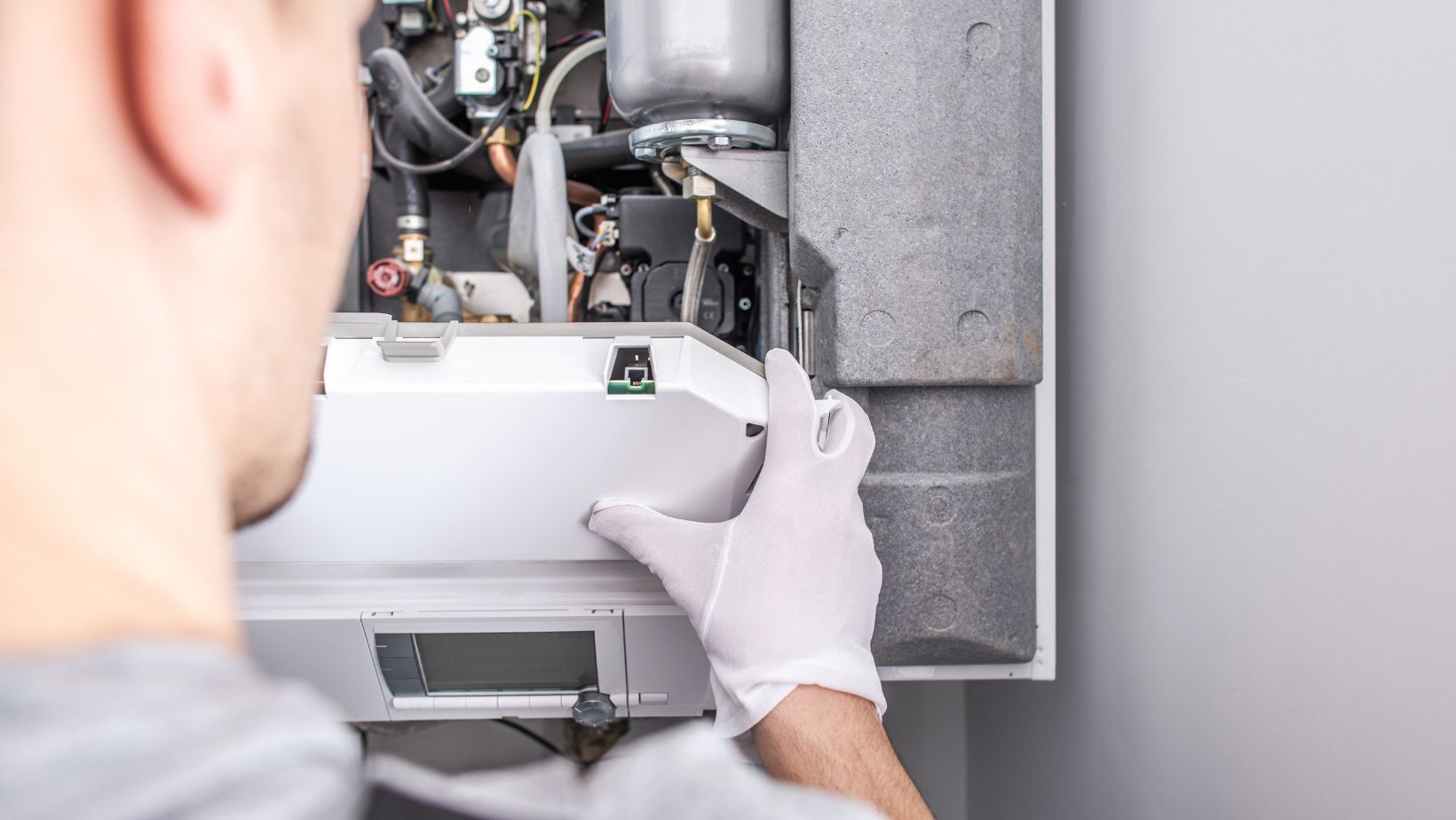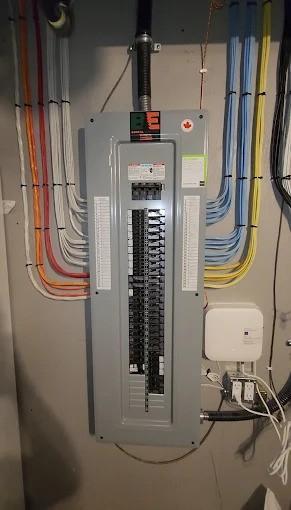
Want to get the maximum number of years out of your heating system?
The average boiler lifespan in the UK is around 10-15 years. However… Some heating systems struggle to reach 10 years while others continue happily chugging along for 20+ years. What’s the difference?
It all comes down to professional servicing. Professional maintenance is by far the biggest factor in whether your heating system becomes a short-lived money pit or a long-term workhorse. And since heating and hot water make up over 50% of your annual energy bills, keeping your system in top shape is not just about comfort – it’s about saving hundreds of pounds per year.
Here’s What You Need To Know:
- The importance of professional heating engineer services
- The true cost of skipping maintenance
- The steps you can take to maximize heating system life
- When it’s time to replace, not repair
Let’s dig in!
Why Do Professional Heating Engineer Services Matter?
Your heating system is hard at work every day during winter months.
Boiler fires up several times per day, components heat up and cool down repeatedly, and pressure changes stress every part of the system. Without regular care and attention, components wear out quickly.
Professional heating engineer services will diagnose and fix small problems before they become big, expensive failures. When you’re looking for heating engineers to work on your home, you aren’t just paying for a quick inspection – you’re investing in the long-term health and performance of your entire heating system. A qualified engineer can spot worn parts, test safety features, and make adjustments to keep everything operating as it should be.
Here’s the thing…
Most heating system failures are 100% preventable. They occur because small problems are ignored until it’s too late and they become big, inconvenient, and often dangerous problems.
What Happens When Maintenance Is Ignored?
Let me show you what I mean:
- Your system becomes less efficient. As components wear out and sludge builds up in your radiators, your boiler has to work harder to keep your home warm. You get higher energy bills month after month.
- Parts fail faster. Without regular cleaning and adjustment, components like pumps, valves, and heat exchangers wear out much faster than they should.
- Safety risks increase. Gas boilers that are not properly serviced can develop dangerous leaks or produce carbon monoxide. Do not take this risk.

- Warranties become void. Most boiler manufacturers require annual servicing to keep your warranty valid. If you don’t comply, you’re on your own when something goes wrong.
- Emergency repairs cost more. When your system finally breaks down during winter, you will be paying emergency rates for any repair work. That’s always more than the annual maintenance would have cost.
The Professional Maintenance Schedule That Works
How often should your heating system be serviced?
The answer is simple: Once per year, no matter what.
The ideal time to schedule maintenance is in late summer or early autumn before you actually need your heating. This allows plenty of time to fix any problems before the cold weather hits.
During a professional service, a qualified heating engineer will:
- Check all safety controls and gas connections
- Inspect the heat exchanger for cracks/corrosion
- Test the flue and ventilation
- Clean or replace filters
- Check system pressure and adjust as needed
- Look for leaks in the entire system
- Test radiators and bleed them if necessary
- Clean burner and flame sensor
- Verify thermostat is working correctly
This comprehensive checkup will catch 90% of potential problems before they can cause a breakdown.
Simple Steps To Extend Your Heating System’s Life
Professional maintenance is critical, but there are also things you can do yourself in between service calls:
- Check your pressure gauge monthly. Your boiler should maintain a steady pressure level. If the pressure keeps dropping, you have a leak somewhere that needs to be repaired.
- Bleed your radiators twice a year. Trapped air in radiators makes your system work harder. It takes five minutes and can significantly improve efficiency.
- Keep the area around your boiler clear. Good ventilation is important. Do not use your boiler cupboard as a storage space.
- Report any strange noises immediately. Banging, whistling, or gurgling noises mean something is wrong. The sooner you call an engineer, the cheaper the repair will be.
- Check for leaks regularly. A small drip can become a major flood if left unchecked. Catch the problem early.
Pretty straightforward, right?
When To Replace Instead Of Repair
Even with perfect maintenance, heating systems do not last forever.
Here’s when it makes more sense to replace rather than repair:
- Your system is over 15 years old AND has frequent problems. At this point, you are just throwing good money after bad.
- Repair costs are more than half the cost of a new system. Do the maths – sometimes replacement is actually cheaper in the long term.
- Your energy bills are rising despite regular maintenance. Older systems lose efficiency over time and a new condensing boiler could slash your heating costs by 20-30%.
- Parts are becoming hard to source. If your engineer struggles to find replacement parts, it’s time for an upgrade.
- The system is making your home unsafe. Any safety issues should be taken seriously – replace immediately.
The True Cost Of Poor Maintenance
Here’s a breakdown of the costs for you:
- Annual professional servicing costs around £80-120. That’s only £10 per month. Emergency winter repairs? Expect to pay £200-500 depending on what’s broken. Complete boiler replacement? £2,000-4,000.
- But here’s what most people don’t realize…
- Poor maintenance also costs you through higher energy bills. An unmaintained system can waste 15-25% more fuel than it should. On a typical heating bill of £800 per year, that’s £120-200 going straight up your flue.
- Over a 10-year period, skipping maintenance could cost you:
- £1,200-2,000 in wasted energy
- £600-1,500 in unnecessary repairs
- Early replacement (lose 3-5 years of system life)
- Total cost? £3,000-5,000 or more.
Compare that to £1,000-1,200 for 10 years of annual servicing. I think the choice is obvious.
Finding The Right Heating Engineer
Not all heating engineers are created equal. Here’s what to look for:
- Proper qualifications. Gas Safe registration is mandatory for anyone working on gas boilers. Do not even consider using an unregistered engineer.
- Experience with your system type. Heat pumps, oil boilers, and gas systems all need different expertise.
- Clear pricing. Get quotes in writing before any work starts. Watch out for engineers who are vague about costs.
- Good reviews. Check online ratings and ask for references. A good engineer should have lots of happy customers.
- Comprehensive service packages. Some engineers offer annual service plans that include regular servicing plus priority emergency callouts. These can offer great value.
The Bottom Line
Your heating system is one of the biggest investments in your home. Treat it right with regular professional maintenance and it will keep your home warm and comfortable for 15-20 years or more.
Skip the servicing and you are gambling with your comfort, your safety, and thousands of pounds in potential repair costs. The annual service charge is not an expense – it is insurance against much bigger problems down the road.
Here’s what you should do next:
- Schedule your annual service if you have not already had one this year
- Make a list of any issues you’ve noticed
- Set a reminder for next year’s service
- Look into a service plan for best value
Don’t wait until something breaks. By then it is too late to prevent the damage – you are just paying to fix it. Keep your heating system professionally maintained and you will enjoy reliable warmth, lower energy bills, and peace of mind for many years to come.












